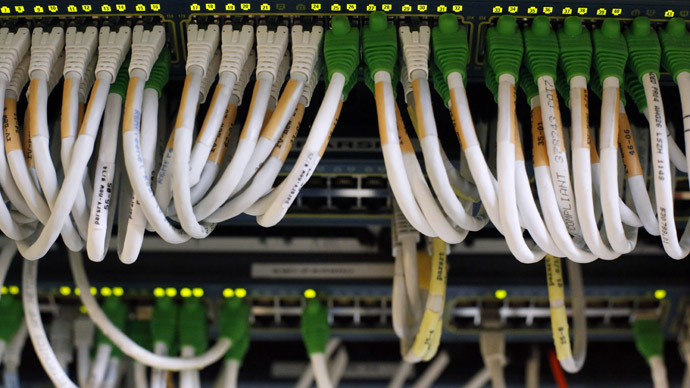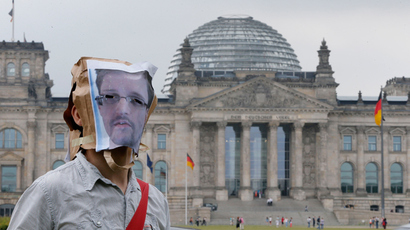Not one byte! German telecom giant plans to rout foreign spooks

Germany’s largest telecom provider, Deutsche Telekom, is looking to introduce a “national routing” service which would keep German internet traffic out of the hands of foreign spies.
The former state-owned communications giant outlined the plans at a secret meeting in the Economy Ministry, business weekly Wirtschaftswoche reported.
Currently, email data is exchanged between users worldwide via international Internet exchange points; physical structures through which Internet service providers (ISPs) exchange Internet traffic between their networks.
The company hopes to hammer out an agreement with other national Internet providers which would guarantee that “while being transported from the sender to the receiver in Germany… no single byte leaves Germany,” Thomas Kremer, a board member of Telekom’s data privacy, legal affairs and compliance, told the magazine.
To put the plan into effect, Deutsche Telekom must secure the support of all its competitors, including Telefonica and Vodafone.
While Vodafone and Telefonica are currently mulling the initiative, another competitor – Internet service provider QSC – has questioned the efficacy of the plan, saying it was not possible to determine with certainty whether data is being routed nationally or internationally.
"In a next step, this initiative could be expanded to the Schengen area," the spokesman said, referring to the group of 26 European countries – excluding Britain – that have removed border controls for participating countries.
Deutsche Telekom first began leading the charge for to protect its users’ privacy from foreign intelligence agencies in August when they rolled out 'Email Made in Germany', an encrypted email service that only uses German servers to process and store all domestic email traffic.
The move followed revelations that the US National Security Agency (NSA) collects 500 million pieces of phone and email metadata from Germany each month — more than in any other EU country.
“Germans are deeply unsettled by the latest reports on the potential interception of communication data," said Rene Obermann, head of Deutsche Telekom.
“Now, they can bank on the fact that their personal data online is as secure as it possibly can be.”
Experts do not believe the move will stop governments from getting their hands on information, although it might complicate efforts to do so.
"Of course the NSA could still break in if they wanted to, but
the mass encryption of emails would make it harder and more
expensive for them to do so," Sandro Gaycken, a professor of
cyber security at Berlin's Free University, said when the idea
was first proposed.














